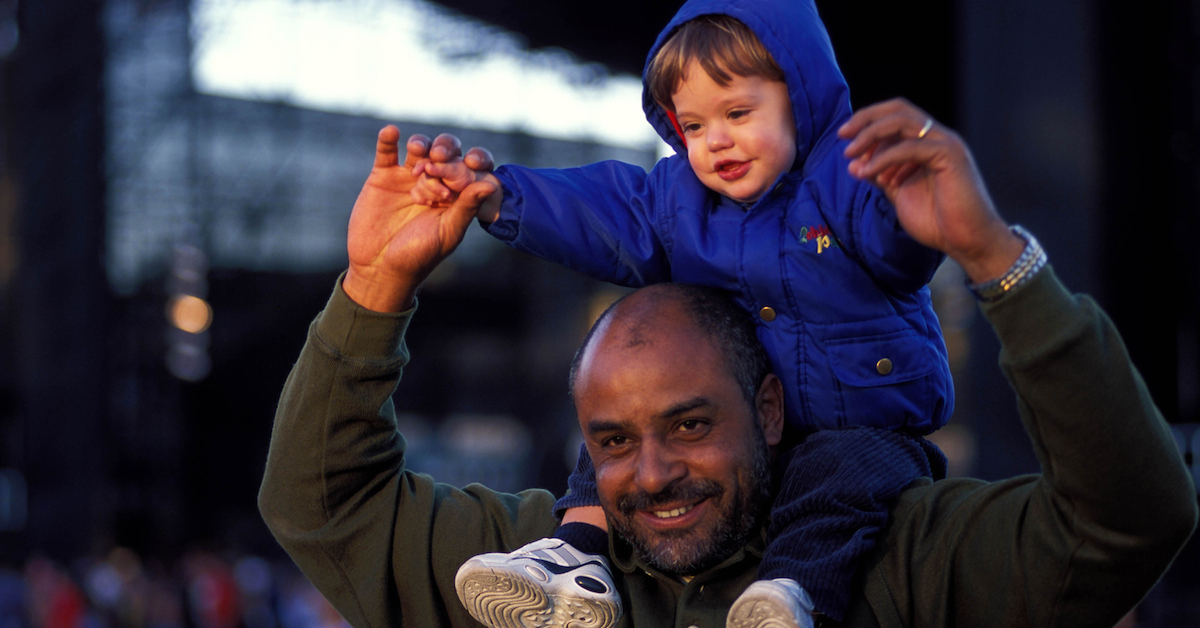By Wessel van den Berg
Originally posted on Sonke Gender Justice

The recently released 2015 General Household Survey revealed a mixed bag for our children. There was a commendable increase in the number of five-year-olds enrolled in school, but at home the picture isn’t so rosy.
According to the survey, 63% of fathers do not live at home with their biological children. This number has remained more or less the same for the past decade. The fact is that there is a massive gap in father’s presence in children’s lives. And this is a problem.
The most obvious is that this may indicate less financial support provided by fathers to families. But there’s another reason fathers should be encouraged to be present and active in their children’s lives. It allows women and girls to achieve their full potential. That’s right: women and girls.
As the 2015 State of the World’s Fathers report points out, women’s participation in the labour force can improve GDP dramatically. Paternity leave for dads, which allows women to have more time available for paid work and leisure is therefore a major step towards improving women’s career opportunities.
Sadly however, only 92 countries offer paid leave for new fathers, and most of them for less than three weeks. Or in the case of Iceland, up to 90 days.
Other countries like Sweden offer up to 10 months of “shared leave” where a couple can decide for themselves who takes the time. In South Africa new fathers do not get any paternity leave. They are allowed just three days of “family responsibility” leave, which should include all family contingencies for the year. So that’s caring for a baby, attending funerals, or caring for sick family members.
It’s the only leave available to fathers who want to get involved in care work. The definition still locates men as the only breadwinner and does not highlight the valuable caring role fathers should play to achieve gender equality.
As a new father living in South Africa, I was lucky to benefit from the four weeks of paid paternity leave my employer offers. My daughter is two years old now, and she uses all of the emotional and physical resources my partner and I have, and I still feel that I should give more. The state of this father is tired.
Baby wipes and more junk in the garage like baby carrier backpacks, car seat bases and a baby chair, fill the space that rock climbing kits used to take. Most of this stuff was passed to us from friends or family, and some we pass straight on!
Managing more stuff is complemented by midnight strolls down the dark hallway with a warm little body against my shoulder. Through the fog of fatigue my daughter and I are developing a friendship that we increasingly depend on.
She reaches for me when she feels afraid, she relaxes when I lift her from her bad dreams, and she loves pulling my beard. And all that started when I had the time to do the care work.
Many children – and fathers, and mothers – in South Africa aren’t as lucky as we are. Two thirds of the children in the country don’t have biological fathers who are around. In addition, women spend at least eight times as much time on care work as men do.
Children attach to the parent who does the most care work with them, but when you’re a single mother holding down a job and doing the care work, you simply have less time to enjoy this valuable time of bonding.
Many mothers and fathers say that they would love men to get more involved in unpaid care work, but unfortunately for them a market that positions women as the only caregivers of children presents a significant barrier.
Other countries in Africa are way ahead of us: Kenya, Madagascar and Mauritania are already providing family leave for up to 10 days. That’s is a great start.
In South Africa, the African Christian Democratic Party has tabled a bill that proposes 10 days paternity leave for new dads.
Although the language on same-sex parents can be dropped (they qualify the bill by stating that it should not be interpreted as an endorsement for gay dads to have children and take leave), the fact that the conversation has been revived in Parliament is a major step towards gender equality.
Paternity leave offers women the time they need to rest, relax, or earn a living, children the care they need to improve their attachment, brain development, and confidence, and men a crucial bonding time with family.
As the bill makes its way through the debate and approval process, you can keep an eye out for opportunities to add your voice.
In the meantime though, on this Fathers’ Day, we should celebrate the unpaid care work mothers do, and encourage the dads who are already sharing the care.